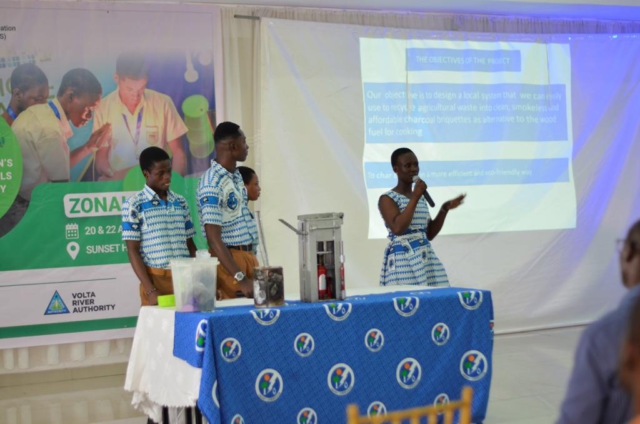Some senior high schools taking part in the ongoing Renewable Energy Challenge will be granted patent rights for the clean technologies they have created for cooking and food processing.
This follows agreements between the Energy Commission, the Council for Scientific and Industrial Research, and the US-based Clean Cooking Alliance.
The Renewable Energy Challenge aims to streamline renewable energy and energy efficiency for STEM education while encouraging creativity and mentoring among young students in Ghana's second-cycle universities.
One hundred and nineteen senior high schools across the country participated in the third edition of the Renewable Energy Challenge.
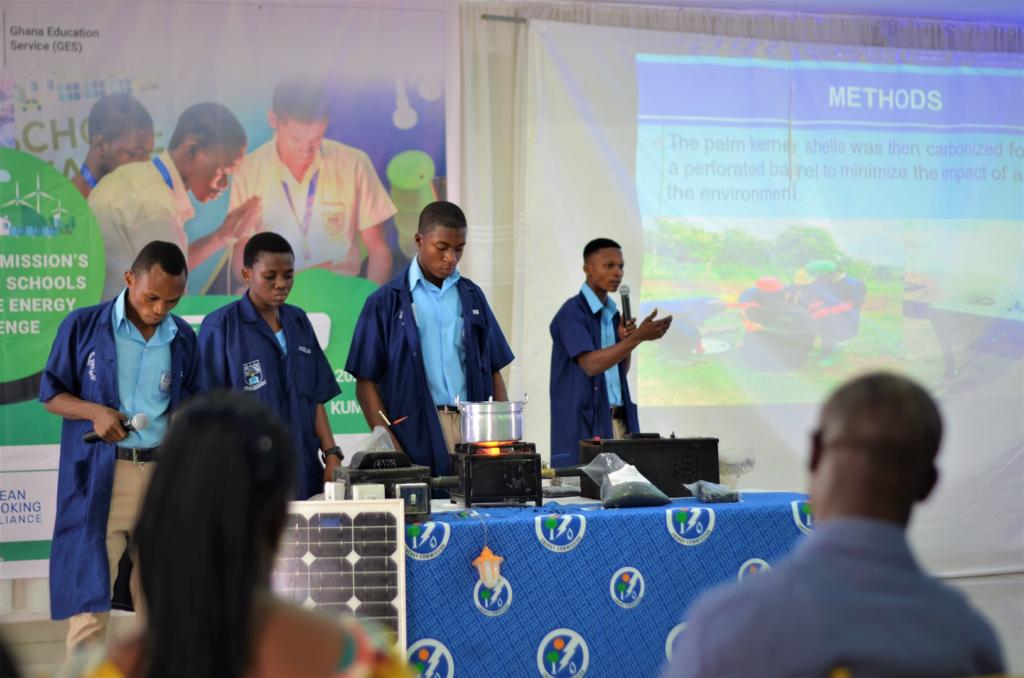
Six of the schools will be battling it out for the national championship.
This year’s theme hinges on providing renewable technologies for clean cooking and food processing.
The World Health Organization estimates an average of four million people die yearly from toxic pollution emanating from conventionally detrimental cooking processes using fuels.
The Energy Commission through its Renewable Energy Act 2011, seeks to promote efficient use of electricity and renewable energy resources to help the country in achieving the Sustainable Development Goal (SDG) 7.
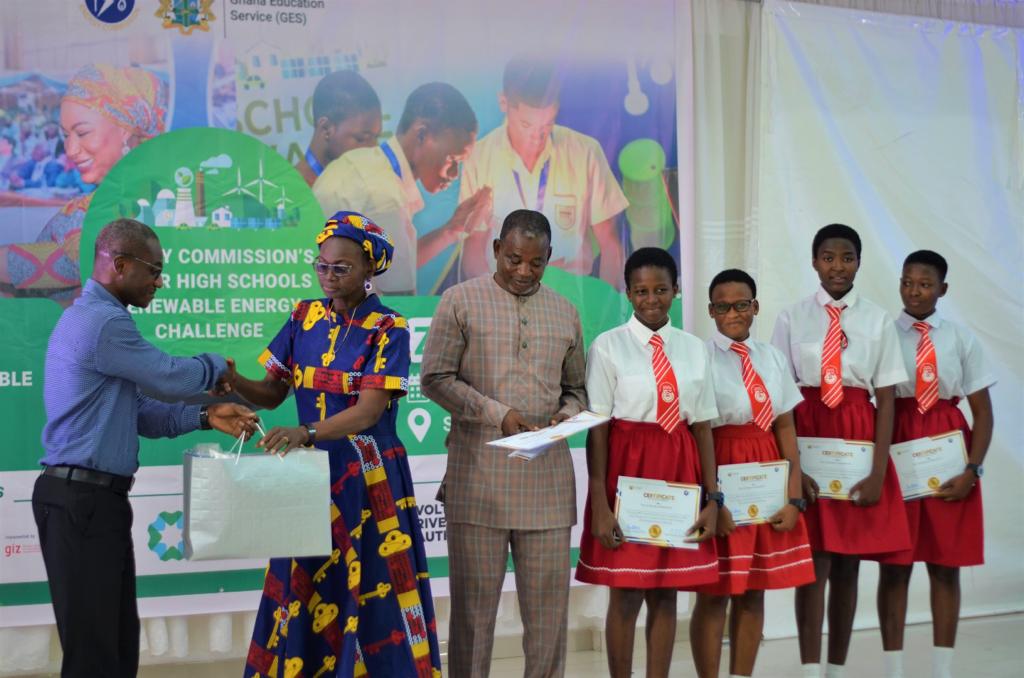
Director for Renewable Energy, Energy Efficient and Climate Change at the Energy Commission, Kofi Agyarko says, “I am happy it’s not only the science students who are doing this but the business students, too. This would help the younger ones to understand the essence of renewable energy so that they can move in line with the global trend of transiting from fossil fuel powered economy to a renewable economy, that’s the net-zero kind of development that the whole world is looking at. We want to help the students to lead that drive”.
Executive Secretary of the Energy Commission, Oscar Amonoo-Neizer, revealed that participating schools will enjoy patent rights to their technologies with mentorship and technical support from the Clean Cooking Alliance and Council for Scientific and Industrial Research.
“One unique thing about this challenge is that the good projects will not end up on the shelves. There is an arrangement with the Council for Scientific and Industrial Research (CSIR) and the Clean Cooking Alliance (based in the USA) to provide mentorship to the winning projects, and other equally good ones to develop and improve on them to become commercially viable. One likely legacy of this competition is that, in future, some schools are going to hold patent rights to technologies that will be a major source of income to them,” he said.
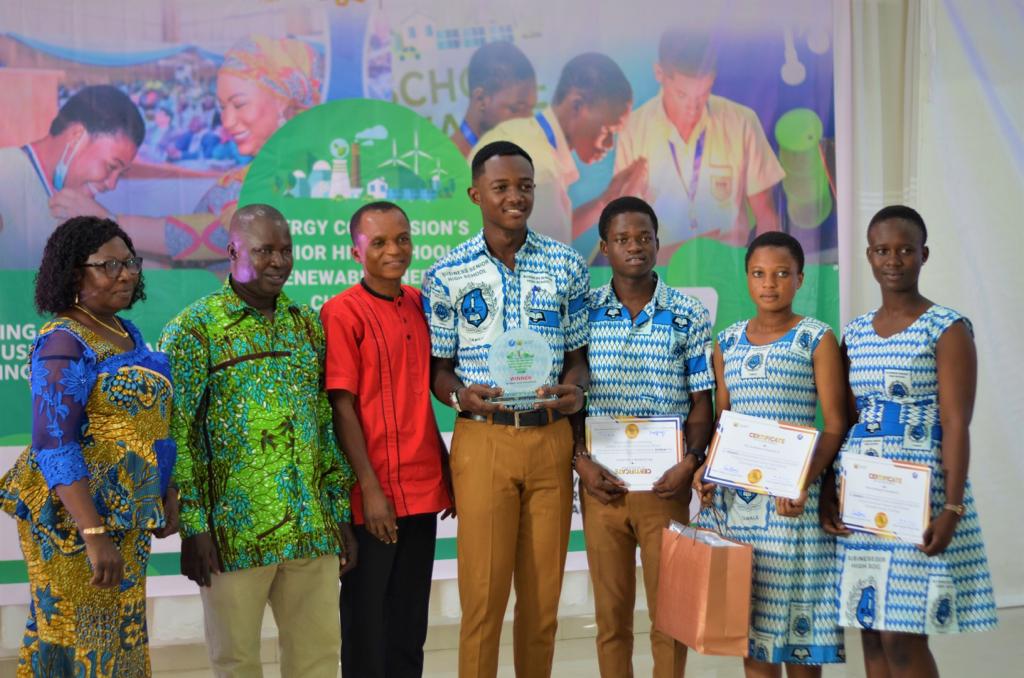
Pleased with the innovations, Director of the STEM Unit at the Ghana Education Service, Olivia Opare, indicated the homegrown solutions by the schools provoke thinking and creativity amongst students.
“They are putting the skills to use to generate products so that in the future it will be viable. The challenge shows creativity. One is able to think critically and come up with something. It also encourages innovation. The students did a lot of research for the challenge using digital means,” she said.
Speaking on behalf of Chief Executive officer of Bui Power Authority, Director Administration of the power distribution company, Pascal Kanbonnabah revealed that collaborations are ongoing for students’ capacity building.
“To further advance the development of renewable energy, which is one of our core mandate and also at the heart of the SHS RE Challenge, BPA is collaborating with the University of Energy and Natural Resources, Kwame Nkrumah University of Science and Technology, and the Berlin Technical University of Germany DAAD to undertake capacity building and Research in renewable energy for students, lecturers and professionals in the RE sector,” he said.
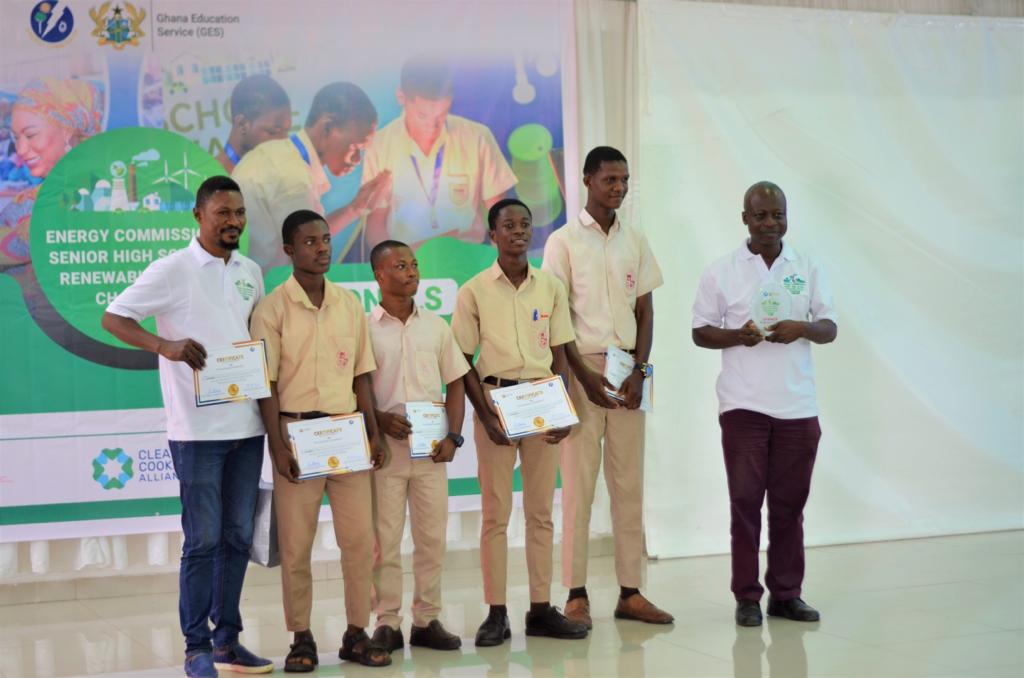
Ghana Secondary Technical School’s (GSTS) TECAN Smart Solar oven and Business SHS’s Agricultural waste recycler into charcoal briquettes won the respective Southern and Northern zonal competition.
Team member for GSTS, Kingsley Mensah said the challenge motivates students to apply theoretical concepts underlying science topics they learn at school.
“Sometimes when I take a physics or chemistry book, do all theories and not apply them I am discouraged. It is difficult learning theories and not apply them. But if we are going to apply them to solve problem, then I am motivated to research more,” he said.
Latest Stories
-
Police foil armed robbery attempt in Accra, two suspects killed
14 minutes -
PURC forces reconnection, resolves water utility dispute in Tamale
16 minutes -
Parliament passes Ghana Medical Trust Fund Bill
30 minutes -
Chinese firms explore opportunities under Ghana’s 24- Hour Economy programme
36 minutes -
Dr Zanetor Agyeman-Rawlings joins Ghana’s delegation to Pan African Parliament
40 minutes -
Forum in Mali sparks debate on Africa’s historical claims for reparations
41 minutes -
Northern Region: PURC resolves consumer utility concerns with innovative outreach programmes
42 minutes -
Ghana likely to end 2025 with inflation rate in single digit – Deloitte
42 minutes -
German Development Cooperation marks milestone in boosting digital job prospects for Ghanaian youth
44 minutes -
Kofi A. Tawiah Foundation to host character education training for educators in northern Ghana
44 minutes -
Newmont completes GH₵ 95m Hwidiem–Kenyasi road; commits $34m to boost Ahafo South infrastructure
52 minutes -
Three poachers arrested in Ankasa Conservation area after failed bribery attempt
60 minutes -
Sekondi court grants bail in 12-year-old assault case
1 hour -
ConShip joins line-up for JoySports Invitational Tournament 2025
1 hour -
Apple set to stave off daily fines, EU to accept App Store changes, sources say
1 hour

